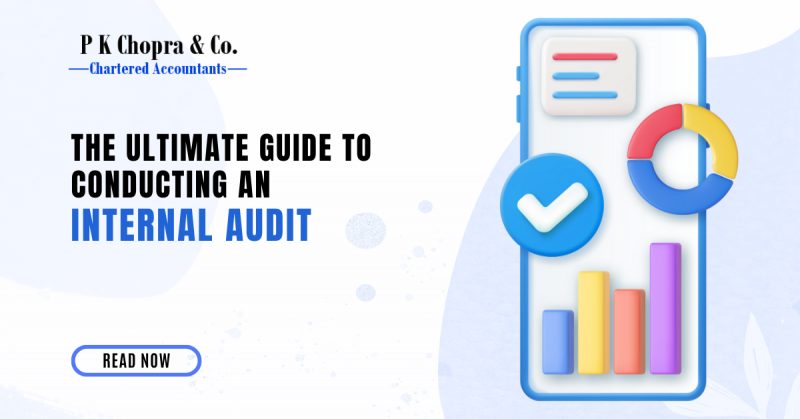The Ultimate Guide to Conducting an Internal Audit in Delhi
Internal audits are an essential part of any organization’s risk management process. Conducting internal audits help in identifying any potential risks and weaknesses in an organization’s policies, procedures, and operations. An internal audit is conducted by the organization’s own employees, rather than by an outside firm. In this article, we will discuss the ultimate guide to conducting an internal audit in Delhi.
Introduction
In this section, we will discuss the basics of an internal audit, its purpose, and its benefits. We will also provide an overview of the process of conducting an internal audit.
Understanding Internal Audit
In this section, we will define what an internal audit is and why it is essential for organizations. We will discuss the different types of internal audits and the benefits they provide.
Preparation for Internal Audit
In this section, we will discuss the steps involved in preparing for an internal audit. We will discuss the importance of setting up an audit team, creating an audit plan, and understanding the organization’s policies and procedures.
Conducting Internal Audit
In this section, we will discuss the steps involved in conducting an internal audit. We will discuss the importance of collecting and analyzing data, documenting findings, and communicating the audit results to the relevant stakeholders.
Reporting and Follow-up
In this section, we will discuss the steps involved in reporting and follow-up after the internal audit. We will discuss the importance of creating an audit report, implementing corrective actions, and monitoring progress.
Conclusion
In conclusion, conducting an internal audit is an essential part of an organization’s risk management process. It helps identify potential risks and weaknesses and ensures compliance with relevant laws and regulations. By following the steps outlined in this guide, organizations can conduct internal audits effectively and efficiently.
FAQs
- What is the difference between an internal audit and an external audit?
- An internal audit is conducted by the organization’s own employees, while an external audit is conducted by an outside firm.
- How often should an internal audit be conducted?
- The frequency of internal audits depends on the organization’s size, complexity, and industry. However, most organizations conduct internal audits annually.
- Who should be involved in the internal audit process?
- An internal audit team should consist of individuals with expertise in the relevant areas being audited, such as finance, operations, and compliance.
- What are some of the benefits of conducting an internal audit?
- Some of the benefits of conducting an internal audit include identifying potential risks and weaknesses, ensuring compliance with laws and regulations, and improving the organization’s overall efficiency and effectiveness.
- How can an organization ensure the internal audit process is effective?
- An organization can ensure the internal audit process is effective by setting clear objectives, creating an audit plan, involving relevant stakeholders, and following up on corrective actions.

